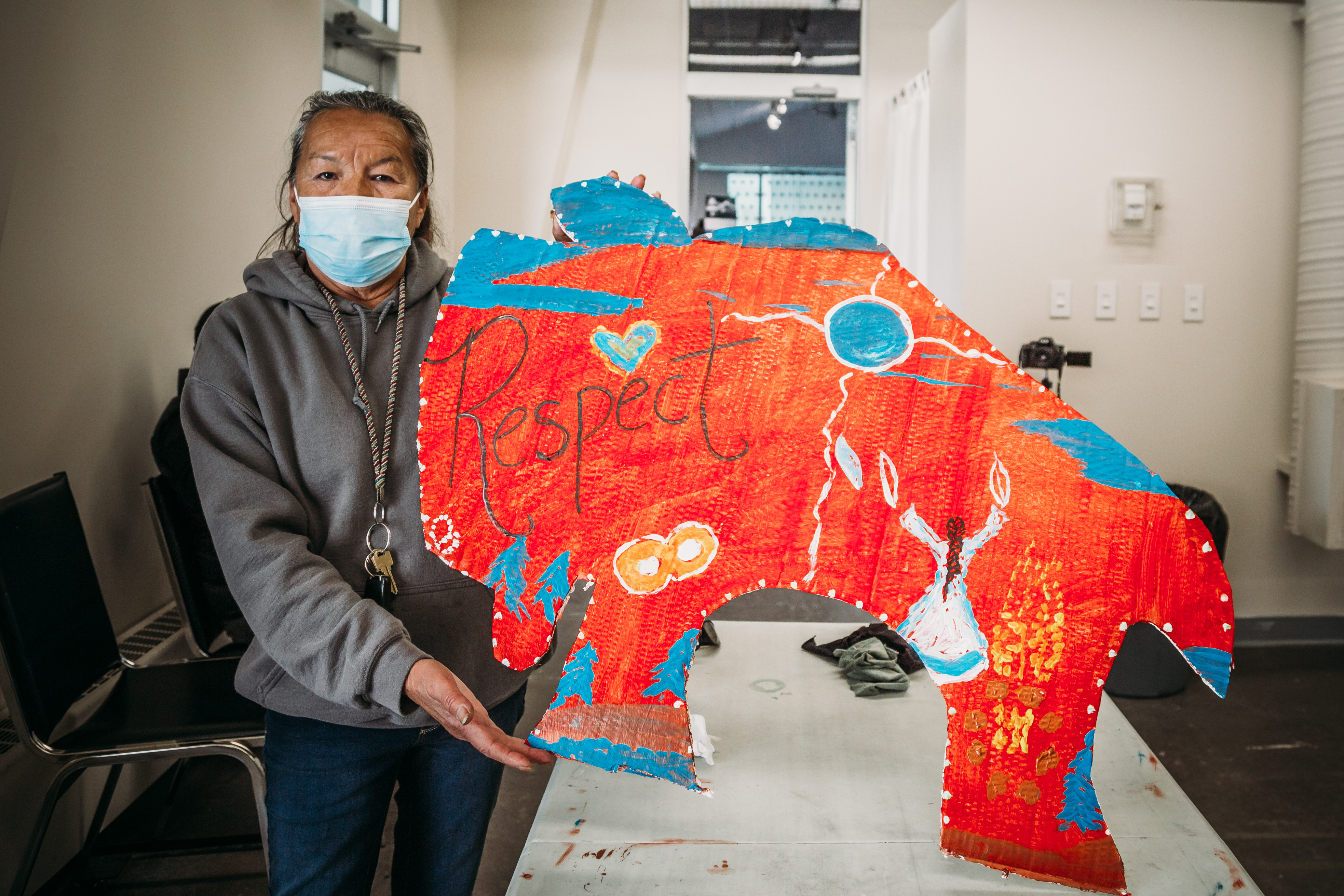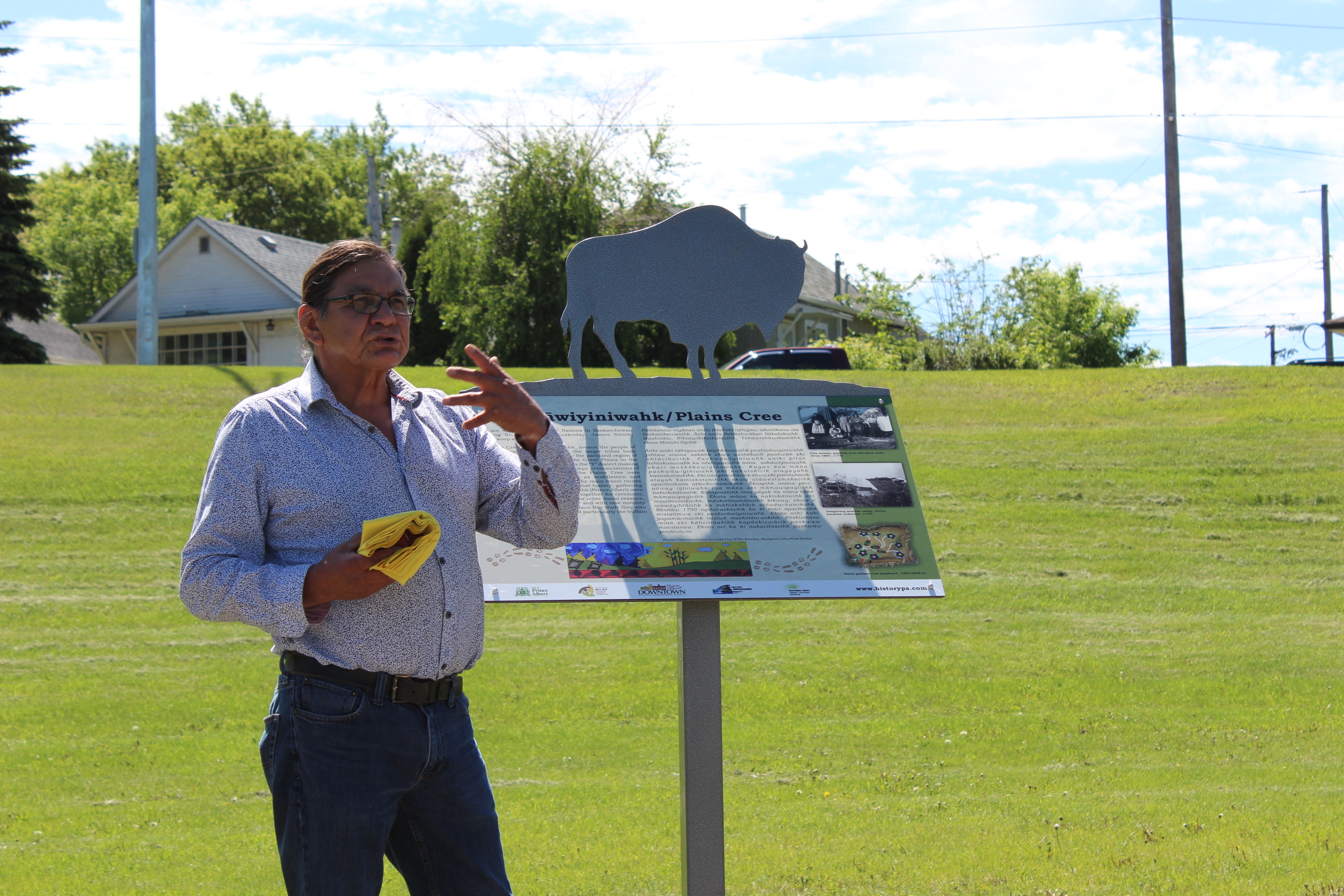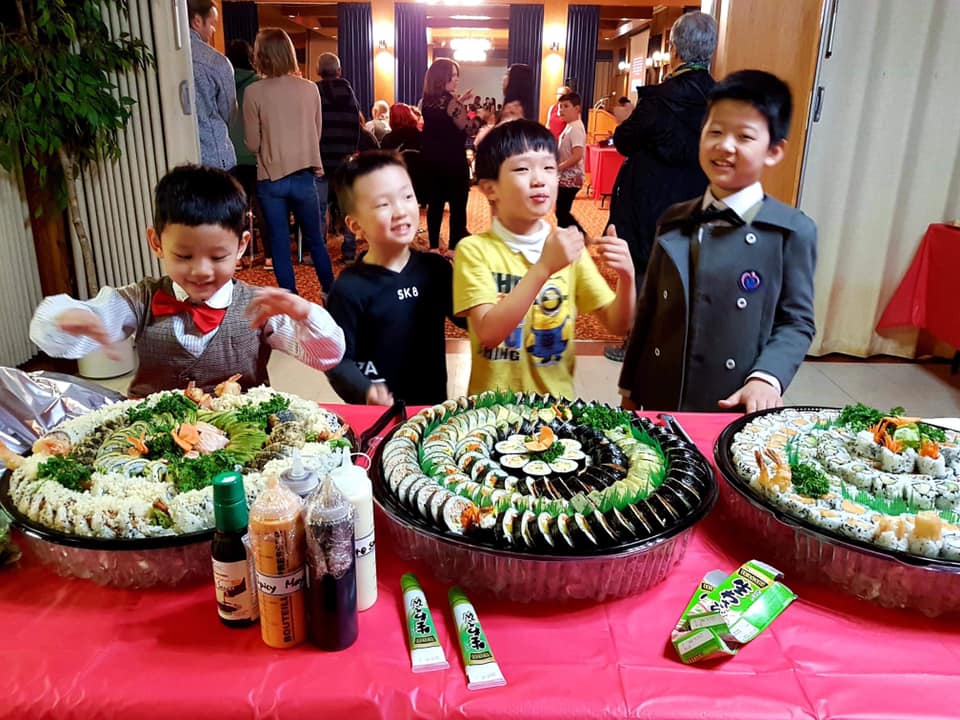Creating a Cultural Diversity and Protocol Policy

Prince Albert is on Treaty Six Territory and homeland to the Métis and Dakota Nations. We are a beautiful city situated on the North Saskatchewan River, and where prairie meets pine. Prince Albert is one of the oldest settlements in the province and is rich with history, culture, and a diverse population. We have one the highest Aboriginal population ratios in the country at 42%. Our immigration community continues to grow. Remaining relatively unchanged since 1981, this population has grown by more than 4 times since 2011. We have a range of settlers that came to this area from European countries generations ago and have well established ethnocultural communities including active Ukrainian, German and French societies that work to celebrate their own unique cultures and heritages.
Through the Prince Albert cultural planning process, community members identified opportunities for Elders and Aboriginal communities to be fully engaged in the decision-making process. This includes municipal planning initiatives and planning of cultural events and activities, or any other undertakings that have an impact on Aboriginal traditional territory/region and Aboriginal rights. Cultural Protocols were researched and drafts provided by Prairie Wild Consulting in the development of the Municipal Cultural Action Plan (MCAP) for the City of Prince Albert.
The Arts & Cultural Coordinator continued the policy work, which included consulting with community (such as the MCAP working group) and provincial organizations (such the Multicultural Council of Saskatchewan). The draft Cultural Policy for Engaging Indigenous People and the Cultural Policy for Engaging Newcomer and Ethnocultural Communities were reviewed and shared with the Community Services Advisory Committee and then the Executive Committee of City Council. In March of 2019, City Council motioned to immediately endorse a land acknowledgement at public events and meetings organized by the City of Prince Albert (if such an acknowledgement has not been made previously at the same event) by City Council and City staff. From there, the two policies were revised again, merging the two documents into one Cultural Diversity and Protocol Policy. This policy was approved in February of this year (2020). Where Indigenous Elders are invited to be part of City meetings or events, the policy also assists by addressing the protocols to follow.
All Canadians are called to engage with the Truth and Reconciliation Commission’s (TRC) 94 Calls to Action. The Cultural Protocols are one way forward to work with the Indigenous and the newcomer and ethnocultural communities. It is important that as a diverse community, home to many Indigenous groups, that we not ignore the challenges posed by our colonial history and recent arrival of many newcomers. As the original inhabitants of this land and as inhabitants of this land by birth, adoption, or immigration, we all share the goal to make our city a better place to live based on mutual respect, equal opportunity and hope.
Implementation of the Policy
The Municipal Cultural Action Plan had already established a set of actions and priorities around how the City can be a leader in creating a stronger cultural community through support of a variety of arts and cultural initiatives. This policy is about voicing a commitment to the ways that the City, as a leader in the community and an employer, can actively engage and build relationships with Indigenous and newcomer communities. There are unique barriers to participation and inclusion that are experienced by our Indigenous and newcomer communities which might include socio economic, language or differing cultural traditions.

There have been many successful initiatives undertaken already that address this policy, such as:
- Call to Action #57 states, ""We call upon federal, provincial, territorial, and municipal governments to provide education to public servants on the history of Aboriginal peoples, including the history and legacy of residential schools, the United Nations Declaration on the Rights of Indigenous Peoples, Treaties and Aboriginal rights, Indigenous law, and Aboriginal–Crown relations. This will require skills-based training in intercultural competency, conflict resolution, human rights, and anti-racism."
In 2019, we contracted Aboriginal Consulting Services, John Lagimodiere to provide Aboriginal Awareness Training. This is mandatory training for all permanent employees which provides for a basic understanding of Aboriginal people in Canada and their history. We completed this set of training in January 2020. Voluntary future sessions will be considered.
- The following land acknowledgement at public events and meetings organized by the City of Prince Albert (if such an acknowledgement has not been made previously at the same event) by City Council and City staff was made through Council resolution in March of 2019:
“We recognize that Prince Albert is located in Treaty #6 Territory and is homeland of the Métis. We extend our respect to all Indigenous people for their valuable past and present contributions and recognize and respect the cultural diversity within the City of Prince Albert.”
- Since 2017, we have partnered with the Prince Albert Multicultural Council and the Prince Albert Grand Council (PAGC) to have a Reconciliation Ceremony as part of the Canada Day events on July 1. PAGC lead these ceremonies and each year there is a different focus and learning such as youth, the PAGC Women’s Commission, and Veterans.
- The Indigenous Naming Initiative aims to investigate Indigenous and diverse naming of places and spaces in the City of Prince Albert that reflect and recognize our community’s population, history, cultures, and diversity. We have a project underway to show the names of “River Street” in all six local Indigenous languages. The river or Kistahpinanihk, the gathering place in Cree, has and always will be, an important place in our community.
- The Indigenous People of Prince Albert Interpretive Walk will have six interpretive signs posted along the rotary trail near the riverbank. The six interpretive signs will include information about each of the First Nations and Métis Indigenous Groups, the first peoples in Prince Albert, who were settled along the Riverbank and the area known as Kistahpinanihk.
- With the above two initiatives, we are working with a group of Knowledge Keepers including all six local Indigenous cultures – Woodland Cree, Plains Cree, Swampy Cree, Dakota, Dene and Métis. This group of Knowledge Keepers was created through the work of the Prince Albert Historical Society in updating their Indigenous artifacts and exhibit including artist lead community murals. This has been a great relationship builder and important means to guide our work in this area.
- We worked with the Prince Albert Multicultural Council to hold Diversity Nights. The purpose of the Diversity Nights is to learn about the cultures that make up our community. Each evening included food, stories, cultural traditions and presentations from three to four different culture/ethnic groups in our community.

- The City helped to start and is an active member of the Prince Albert Urban Indigenous Coalition (PAUIC). The PAUIC has a strong focus on reconciliation and education. We are funded through Indigenous Services Canada for five years.
- Through a land swap agreement, the Parkland Hall is now owned and operated by Prince Albert Grand Council. This includes community programming and rental use for the facility and neighborhood. Also new to that area is Alfred’s Skateboard Park.
- The Alfred Jenkin’s Accessible Playground which opened in 2019 is one of the first accessible playgrounds in the country, and a leading example of providing facilities for all to people to enjoy.
- The City supports many community special events through the waiving of fees policy, Community Grant Program, and Destination Marketing Fund, such as the Community Youth Powwow, National Indigenous Day, and other events.
- The MCAP has an annual budget for protocol expenses such as meetings, resources, and tobacco.
Newcomers and Indigenous people are our neighbours and our co-workers. Our kids go to school together and play on the same teams. Through the MCAP and our policy, Prince Albert will continue to do its part to create a welcoming community, but we all have a responsibility to put in the effort to understand one another, lend a helping hand and be good neighbours. The Cultural Diversity and Protocol Policy provides the framework for intentional action. We look forward to continuing to build positive relationships and community cohesion.
For more information, you can find the Municipal Cultural Action Plan and related documents
here.



